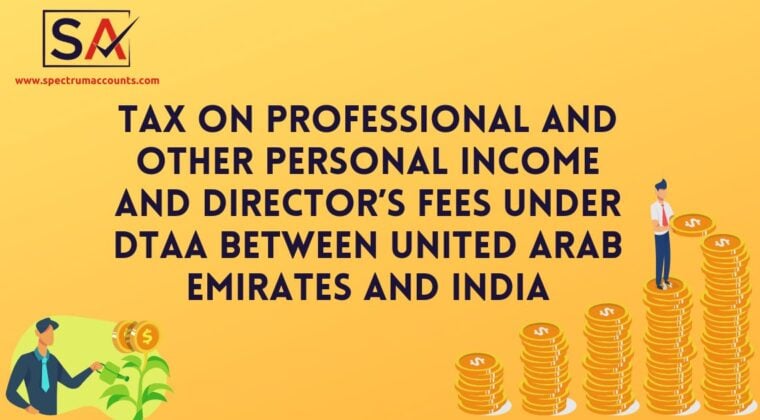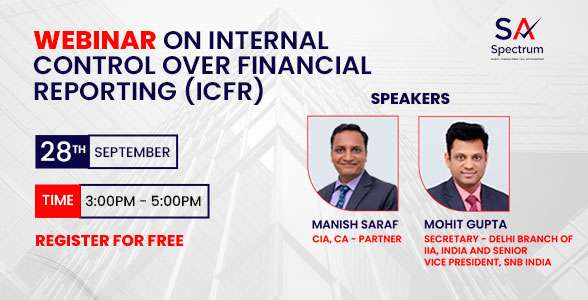What is the purpose of having an Agreement for Avoidance of Double Taxation and Prevention of Fiscal Evasion with UAE by India (DTAA) between UAE and India?
- In the Present Era of cross border transactions across the globe, the effect of Taxation is one of the important considerations for any Trade and Investment decisions in another countries.
- Where a taxpayer is resident in one country and but has source of income situated in another country, it gives rise to possible double taxation.
- DTAA lays down rules for taxation of the income by the Source country and the residence country.
This treaty was entered into by UAE and India with an aim to promote their economic relations and prevent tax evasion.
Scope
This DTAA agreement shall apply to persons who are residents of one or both of the Contracting States (UAE or India).

Taxes Covered
This agreement applies on the following existing taxes:
- Income Tax, Corporation Tax and Wealth Tax in UAE
- Income Tax and Wealth Tax in India
Following is the summary of the DTAA between UAE and India with respect to professional and other personal income and director’s fees:
| Area of Income | Income earned in | Income taxed in | Remarks |
| Independent professional services | In the contracting where he is resident | In the same state where he is resident | Exception:
Taxable in the other state on 1)Income attributable to the fixed base available in the other contracting state. 2)Income from the activities performed in the other state where his stay is for a period of at least 183 days in the previous year. |
| Dependent personal Services- Remuneration of an employment exercised aboard a ship or aircraft | In the contracting state where the enterprise is situated | In the same state where the enterprise is situated | |
| Dependent personal services- Remuneration in other cases | In the state by a resident | In the same state where he is resident but if employment is in another state, then taxable in other state. | Exception:
Taxable in the state where he is resident even of the employment is in another state if 1)the recipient is in other state for a period not exceeding in aggregate 183 days in previous year 2)Remuneration is paid by employer who is not a resident of other state |
| Director’s fees | In the state where the Director is resident | In the state where the company is resident |

Article 14 – Independent personal Services
- Income derived by a resident of a contracting state in respect of professional services or other independent activities of similar character shall be taxable in that state
- However, in the following circumstances such income may also be taxed in other state
- If he has a fixed base regularly available to him in other state for the purpose of performing his activities
- If his stay in India is for a period amounting to or exceeding in the aggregate 183 days in the relevant previous year.
to the extent attributable to the fixed base or based on his stay.

Article 15 – Dependent personal Services
- Salaries, wages and other similar remuneration derived by a resident of a contracting state in respect of an employment shall be taxable in the state unless the employment is in other state.
- Remuneration derived by a resident of contracting state in respect of an employment in other state shall be taxable only in the first mentioned state, if:
- The recipient is present in other state for a period or periods not exceeding in aggregate 183 days in the relevant previous year.
- The remuneration is paid by, or on behalf of, an employer who is not a resident of other state.
- The remuneration is not borne by a PE or a fixed base which the employer has in other state.
- Remuneration in respect of an employment exercised aboard a ship or aircraft in international traffic by an enterprise of a contracting state shall be taxable only in that state.

Article 16 – Director’s Fees
Director’s fees and similar payments derived by a resident of a contracting state from a company which is a resident of other contracting state may be taxed in that other state.

Elimination of Double Taxation
- Where a resident of India derives income or owns capital which, in accordance with the provisions of the agreement, may be taxed in UAE, India shall allow as a deduction from the tax on the income/capital of that resident an amount equal to Income tax or capital tax paid in UAE whether directly or by deduction.
- Where a resident of UAE which in accordance with the agreement may be taxed in India, UAE shall allow as a deduction from the tax on income of that person an amount equal to income tax paid in India.
- However such deduction shall not exceed that part of Income tax or capital tax as computed before the deduction is given.
Exchange of Information between the tax authorities of UAE and India
The competent authorities of contracting state shall exchange such information as is necessary for carrying out the provisions of the agreement or for the prevention or detection of evasion of taxes.

Limitation of Benefits
An entity which is a resident of a contracting state shall not be entitled to the benefits of this agreement if the main purpose of creation of such entity was to obtain the benefits of this agreement.

Why Spectrum Auditing?
Reach out to Spectrum Auditing for further details in order to assist you with information related to Double Taxation Avoidance Agreement (DTAA) between UAE and India. Call us today for any kind of assistance at +971 4 2699329 or email [email protected] to get all your queries addressed. Spectrum is your partner in your success.
AUTHOR

Managing Partner



 contact us
contact us